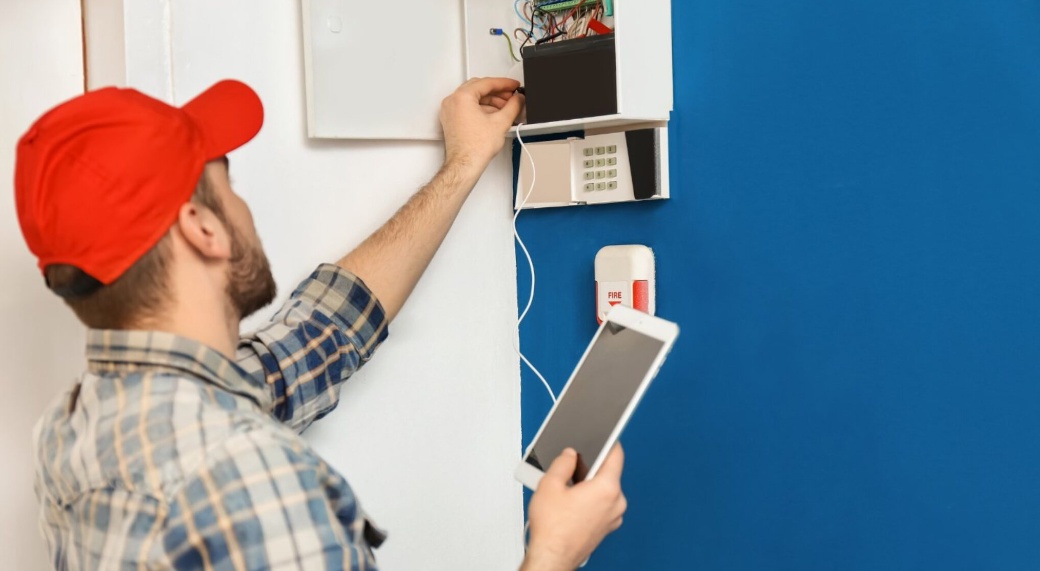Home alarm systems are indispensable for the security and safety of our residences and home members, but as with every electric appliance, sometimes they just fail. Moreover, their failure can be so important as to compromise the proper functioning of the system. In this article, let’s explore the implications for those home alarm systems in case of electric failure and propose some measures that should be taken to avoid the dangers.
Understanding Home Alarm Systems
Home alarm systems are complex security installations that offer safety to homes and their contents from a variety of misfortunes, which may involve theft and fire outbreaks. The system is made up of different components, including sensors such as motion detectors and door/window contacts, which are used to detect intrusion or movement within the designated area. All these are connected to an oriented control panel where the signals are processed before raising the proper responses. In this respect, the warning is carried out with the communication devices, which use cellular and internet modules, which, in this case, will alert either the homeowners or the monitoring centers.
Impact of Electrical Failure
Electrical failure can affect home alarm systems. It describes a situation in which the power supply is lost in such a manner that it makes the alarm system inoperative, and the home becomes vulnerable to security threats. This has been the reason why any sensor-based equipment, including the motion detector, door or window contact, or smoke detector, if malfunctioning, could inadvertently cause power surges, fluctuations, or damage to electrical circuits. Such may lead to false alarms or missing real security breaches or emergencies and generally make your home more vulnerable to any possible threats.
Loss of Power
The first concern has to do with an electrical failure: loss of power to the alarm system is evident. In those cases where there is no constant flow of power, systems like the alarm become inoperable, hence leading to the exposure of the home to security breaches. In addition, power outages may disrupt communication with the monitoring services. Hence, the system may not be alerting the authorities in times of emergencies.
Malfunctioning Sensors
The majority of home alarm systems are designed to incorporate motion detectors, door/window contacts, and smoke detectors as different kinds of sensors to sense intrusion or a hazard. They are inoperable or may work partially during a power failure when electric power from the mains cuts out. For example, power surges or cuts may damage the sensor circuits, which could either sound false alarms or, in the worst-case scenario, fully lose detection capability.
Communication Issues
The majority of modern-day home alarm systems come with inbuilt communication modules that can send warning messages either to the homeowner's smartphone or directly to the monitoring service through cellular or Internet networks. During a power outage, these communication channels become non-operational, thus removing the ability to relay alerts or accept control from a remote location.
Battery Backup Drainage
Most home alarm systems provide battery backup so that they continue to work even when the electricity goes off; however, if the outages are prolonged, they might just draw from these batteries. Once the power backup has drained fully, the system may not be operational at all, leaving the home vulnerable for that duration before power is restored.
Preventive Measures and Solutions
Homeowners can never worry about electrical failures because home alarm systems can be protected by uninterruptible power supplies (UPS) and surge protection devices. Routine maintenance checks always point out potential problems. These could be realized by communication links, alternatives to landlines, or a redundant cellular network that would still have the alarm connected to the service during the interruption. In other words, the owner is supposed to enhance the alarm system's ability to withstand electric failure and provide constant property protection.
Uninterruptible Power Supply (UPS)
A UPS can be installed to feed essential parts of the alarm system and sustain normal operation upon a transient cut-off of the device's power. The UPS can sustain power for various lengths of time and allow the homeowner to maintain the system's functionality until normal power is restored.
Surge Protection
Protect home alarm systems from damage due to electrical power surges using surge protectors or whole-house surge suppression devices. These will redirect electrical energy away from too-sensitive equipment, thus reducing the possibility of component damage from electrical disturbances.
Regular Maintenance
The home alarm system should be checked and maintained regularly to determine whether something is wrong with it and ensure that it works properly. Periodic checking of wear or damage to the batteries, sensors, and connections is recommended to rectify problems and avert system failure.
Alternative Communication Methods
Besides that, backup communication should be considered, which might be offered through the landline or even by multiple cellular networks to prevent the home from being left off the radar in the event of an internet or cellular service outage. This provides the benefit that systems can still be in a position to send alert signals and receive control instructions if primary channels of communication are unavailable.
In conclusion, The major risk in relation to the function of home alarm systems is related to electrical failures that would compromise, at the greatest risk, both the security and safety of residential properties. These are highly important steps that need to be understood by homeowners to ensure that such failures do not happen, and if they do, their implications are averted. The homeowner reduces the exposure of failure to electricity in their home by installing backup power solutions, surge protection, or routine maintenance of alternative communication systems.


No comments yet